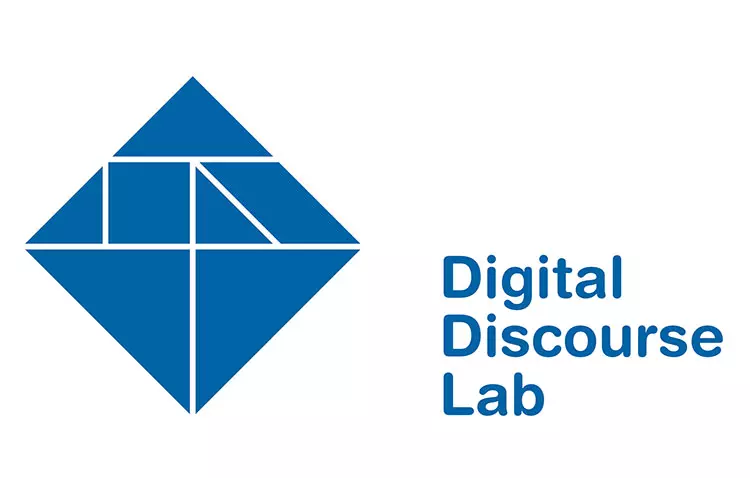Digital Linguistics

In the Digital Linguistics professorship, we focus on discourse analysis and writing process research. We research the production of written language and its public impact, as well as develop digital methods for analysing large volumes of text data. For example, with respect to the impact of written language, we investigate how current issues are discussed in Switzerland. This enables us to discover the statements and actors that are shaping discourse. Such research is highly relevant because it allows us to understand how public language use influences how we think and act. In the professional world, this makes it easier to tailor communication tasks to discourse. With respect to the production of written language, we investigate how students and language professionals write and revise texts. This enables us to discover the strategies and tools they use. Such insights advance research because they allow us to develop theories and models of the writing process. For the professional world and society in general, this helps us to design and implement new tools that better support and assist writers.
In focus
Swiss-AL corpus

Discourses shape society and originate from patterns of public language use. The basis for their analysis is formed by the Swiss Corpus for Applied Linguistics (Swiss-AL). It is the largest multilingual corpus in Switzerland and comprises texts from more than 350 relevant stakeholders of public communication. It currently contains 8 million texts, including news articles, specialised publications, parliamentary protocols and websites of political parties, companies and universities, as well as position papers from business associations and NGOs. A flexible linguistic data processing pipeline allows for data-based and data-driven analysis of social and political discourses.
COVIDisc research project

The containment of the COVID-19 pandemic depends to a large extent on successful communication between public health organisations and individual social groups among the general public. The COVIDisc project analyses public discourse and how it is perceived by highly mobile population groups with the objective of formulating suitable recommendations for public health organisations aimed at facilitating the communication of measures. The interdisciplinary and transdisciplinary research initiative is the only linguistics project to be financed by the “Special Call on Coronaviruses” of the Swiss National Science Foundation.
COVIDisc research project
Digital Discourse Lab

The Digital Discourse Lab is part of the ZHAW School of Applied Linguistics. The Lab comprises experts from the areas of digital linguistics, discourse linguistics and organisational communication. It supports its partners and clients in acquiring skills that enable them to deal with public discourses and also helps them in developing communicative solutions. The Lab tackles problems with social relevance, working both with and for practitioners who are faced with these issues on the ground. To this end, the Lab models, analyses and simulates public discourses on the basis of digital language data.
Digital literacy in university contexts (DigLit)

In this joint project between swissuniversities, the Zurich University of Applied Sciences (ZHAW), the Zurich University of Teacher Education (PHZH), the Bern University of Applied Sciences (BFH) and the University of Neuchâtel, we are investigating how digital technologies can support the writing process. Artificial intelligence (AI) can help as part of intelligent tutoring or during automated writing assessment processes. We are working to integrate such AI-based technologies into university teaching and advisory services, doing so in a systematic and appropriate manner that allows both students and lecturers to benefit. In performing this work, we make use of and further develop computational linguistics methods.
Projects
-
Monitoring Vaccination Discourse
The WHO identified vaccine hesitancy as one of the ten major threats to global health. It can be assumed that the public discourse has a significant influence on the individual vaccine decision. Thus, to understand and counter vaccine hesitancy, it is crucial to understand how media reports on vaccination, how the ...
-
Swiss-AL: Linguistic Open-Research-Data Practices for Applied Sciences
The ZHAW School of Applied Linguistics develops Swiss-AL (Applied Linguistics), an ex- tensive collection of text data in all Swiss national languages, a linguistic processing pipe- line, and a browser-based analysis workbench, enabling researchers to explore copyright- protected data on public language use. ...
-
Monitoring Sustainability
Embracing Sustainability is an overarching goal in ZHAW’s strategic leadership, research and education. We contribute to this goal by: building a richly annotated text corpus on Swiss sustainability discourse (defined by the UN Sustainable Development Goals), giving access to the corpus for all ZHAW members and the ...
Research-based teaching
We offer courses in all degree programmes at the School of Applied Linguistics. In modules in the BA and MA programmes, students learn about theoretical principles, case studies and practical experiences from our projects.
We supervise bachelor’s and master’s theses with a focus on discourse analysis, text production and corpus linguistics. We arrange for theses in collaboration with non-academic partners, such as the city of Winterthur. We also regularly offer internships for students from various disciplines.
We run the CAS Writing – Revision – Design for Print and Web at the School of Applied Linguistics and teach in the CAS Political Communication and in the CAS Innovation in Journalism.
Team
-

Professor of Digital Linguistics and Discourse ...
-

Professor of Digital Linguistics and Writing ...




